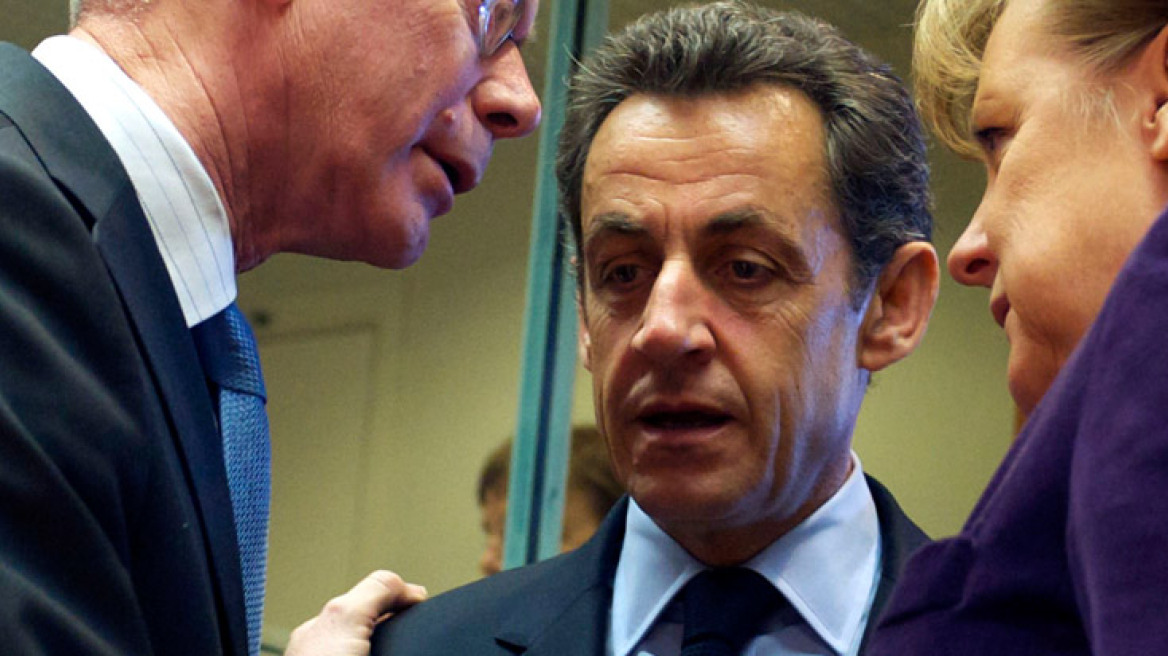
Summit clashes
Summit clashes
The EU once more faced the “Franco-German axis”, while its members were asked to consent to a plan predetermined in Berlin and Paris.

UPD:
The EU once more faced the “Franco-German axis”, while its members were
asked to consent to a plan predetermined in Berlin and Paris.
This is too much of a déjà vu since the the 27 members were formally asked to ratify something decided in individual meetings between Sarkozy and Merkel.
Thus, the 27 decided on the validation (?) of the new Franco-German plan that summarily permits the reinforcement of the European Financial Stability fund, pending prior approval of all member countries on the principles of economic governance, endurance tests for banks and the consolidation of the financial sector, as well as the implementation of the so-called “European Semester”.
In the final version and joint statement of the 27, one reads the carefully worded phrase about a “principle of consensus”. The sentence does not reflect the true picture, the true balance within the EU and the actual events in the Summit.
The truth is that the Franco-German plan divides EU leaders mainly on the issues of salaries and inflation correlation that Merkel promotes, as well as tax harmonization. At least 5 countries have good reason to oppose these two arrangements, and the bad thing for Mrs. Merkel is that this time the “dissidents” do not belong to the usual-suspects group of the ‘naughty’ Southern regions, but to until recently so-called “hard core” of the Eurozone.
For example, Yves Leterme of Belgium called this tax reform “unequivocally unacceptable”, while he objected to the new measure of automatic salary indexation.
Even the Austrian chancellor, Werner Faiman, opposed the measures that would lead to a common retirement age in Europe. Especially the latter’s reaction has come as a shock, since just a week before, the Austrian Chancellor stated in a German newspaper that he thought “it is imperative that European countries harmonized their social and economic policies”.
Thus, the 27 decided on the validation (?) of the new Franco-German plan that summarily permits the reinforcement of the European Financial Stability fund, pending prior approval of all member countries on the principles of economic governance, endurance tests for banks and the consolidation of the financial sector, as well as the implementation of the so-called “European Semester”.
In the final version and joint statement of the 27, one reads the carefully worded phrase about a “principle of consensus”. The sentence does not reflect the true picture, the true balance within the EU and the actual events in the Summit.
The truth is that the Franco-German plan divides EU leaders mainly on the issues of salaries and inflation correlation that Merkel promotes, as well as tax harmonization. At least 5 countries have good reason to oppose these two arrangements, and the bad thing for Mrs. Merkel is that this time the “dissidents” do not belong to the usual-suspects group of the ‘naughty’ Southern regions, but to until recently so-called “hard core” of the Eurozone.
For example, Yves Leterme of Belgium called this tax reform “unequivocally unacceptable”, while he objected to the new measure of automatic salary indexation.
Even the Austrian chancellor, Werner Faiman, opposed the measures that would lead to a common retirement age in Europe. Especially the latter’s reaction has come as a shock, since just a week before, the Austrian Chancellor stated in a German newspaper that he thought “it is imperative that European countries harmonized their social and economic policies”.
Last but not least, reports from Brussels state that several leaders have severe reactions to the tight schedules set by the French and the Germans for the final adoption of this notorious Competiviveness Pact. In fact, they consider the March deadline suffocating, since they are taking into account reactions within each country.
In the final text of the Summit it appears that the overall package of decisions is going to be completed in March and passed by Parliament by June, but the question remains whether this commitment must be implemented or not…
Then again, maybe some international media find a reason to ridicule the European economics bellwethers once more for their statements and their optimism.
This is reflected in Olli Rehn’s statement, who immediately after the summit spoke of a “decisive step towards finding a solution to the euro debt crisis” and described 2011 as a “Year of revitalization and reform of the euro”.
In the final text of the Summit it appears that the overall package of decisions is going to be completed in March and passed by Parliament by June, but the question remains whether this commitment must be implemented or not…
Then again, maybe some international media find a reason to ridicule the European economics bellwethers once more for their statements and their optimism.
This is reflected in Olli Rehn’s statement, who immediately after the summit spoke of a “decisive step towards finding a solution to the euro debt crisis” and described 2011 as a “Year of revitalization and reform of the euro”.
UPD:
Ακολουθήστε το protothema.gr στο Google News και μάθετε πρώτοι όλες τις ειδήσεις
Δείτε όλες τις τελευταίες Ειδήσεις από την Ελλάδα και τον Κόσμο, τη στιγμή που συμβαίνουν, στο Protothema.gr
Δείτε όλες τις τελευταίες Ειδήσεις από την Ελλάδα και τον Κόσμο, τη στιγμή που συμβαίνουν, στο Protothema.gr
ΡΟΗ ΕΙΔΗΣΕΩΝ
Ειδήσεις
Δημοφιλή
Σχολιασμένα






































